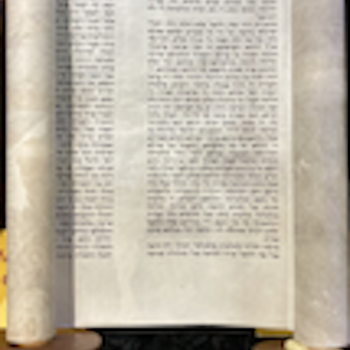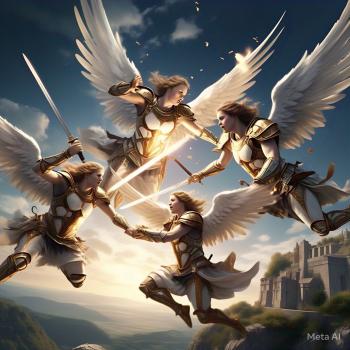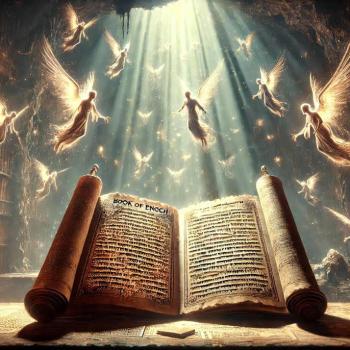Today’s front page of USA TODAY newspaper presents quite a contrast with two headshot photos. One is of former U.S. President George W. Bush laughing at the opening celebration of his presidential library at the Southern Methodist University campus in Dallas, Texas. Three other former U.S. presidents and current President Barak Obama attended this event. The other photo is of 26-year old Ronny “Tony” Roma, a U.S. Marine veteran badly disfigured in his face from a IED roadside explosion he sustained in the Iraq War. A big question that Americans are still asking is whether or not that war was necessary, especially since no WMD were found.
On September 11, 2001, an Islamic terrorist organization named Al-Qaeda and led by Osama bin Laden attacked the U.S. by hi-jacking four commercial airlines and killing almost 3,000 Americans, mostly by crashing two of the jets into the Twin Towers on Manhattan Island in New York City. The U.S. then started a war in Afghanistan since it had harbored Al-Qaeda there, allowing it to train its fighters. Strangely, President George W. Bush soon took his eye off that ball and focused it on Iraq due to the Bible. Rather than taking out bin Laden, Bush was more interested in taking out President Saddam Hussein of Iraq because of how Bush interpreted something in the Bible.
Years later, on April 15th, 2013, two radicalized Muslims bombed the Boston Marathon, killing three people and injuring more than 200. Tamerlan Tsarnaev, now dead, and his brother Dzhokhar Tsarnaev, now hospitalized, committed this evil deed mostly due to their opposition to U.S. involvement in the wars in Iraq and Afghanistan. Tamerlan was the eldest and most radicalized, Islamic jihadist of the two brothers. Tamerlan’s neighbor, Albrecht Ammon, has been quoted as saying that Tamerlan said the U.S. “uses the Bible as an excuse for invading other countries.” That may have been true of U.S. President George W. Bush in his decision for the U.S. to attack Iraq.
Early in 2003, President George W. Bush made a remark on the telephone to France’s President Jacques Chirac about “Gog and Magog” in the Bible. That probably is why Tamerlan Tsarvaev made his above remark. This phone call occurred only weeks before the U.S.-led coalition invaded Iraq. Bush was trying to convince Chirac to have France join the UN-approved coalition, but Chirac was adamantly refusing. Bush then further explained that “in the Middle East” he saw “Gog and Magog at work.” President Chirac was shocked and wondered how anyone could be of such a strange mindset.
This Bush-Chirac phone call was first reported by Jocelyn Rochaton on September 10, 2007, thus four years later, in France’s magazine Allez Savoir! Lately, journalists have been claiming that this episode was very under-reported.
Another related and under-reported incident also involved George W. Bush but earlier, while he was governor of Texas. Houston Chronicle sports columnist Mickey Herskowitz, a long-time friend of the Bush family, is the one who reported it. In 1999, Mickey had twenty private interviews with George W. Bush while ghostwriting his autobiography. In one of them, Governor Bush said if he ever became U.S. president he would invade Iraq and overthrow its President Saddam Hussein. Herskowitz was a trustworthy journalist who wrote autobiographies of other leading public figures and professional athletes. (I think I’ve met Herskowitz, and he may have written about me.)
Mickey Herskowitz had a signed a book contract with George W. Bush. The reputable William Morrow Company eventually published this book with the title A Charge to Keep. When Mickey completed the manuscript, Bush’s advisors decided it did not present him positively enough. So, Herskowitz was replaced with George W. Bush’s communications director Karen Hughes as the finishing author. Mickey afterwards wrote of George W., “He thought of himself as a superior, more modern politician than his father and Jim Baker [the elder Bush’s close friend and his Secretary of State]. He told me, ‘[My father] could have done anything [in the Persian Gulf War]. He could have invaded Switzerland. If I had that political capital, I would have taken Iraq.'”
(This quote is from “Profile: Mickey Herskowitz,” accessed on April 28, 2013, at http://en.wikipedia.org/wiki/Mickey_Herskowitz. These revelations of George W. Bush’s political views on war get worse in reports by Russ Baker, accessed on April 28, 2013, at http://www.russbaker.com/archives/Guerrilla%20News%20Network%20-%20Bush.htm.)
George W. Bush has admitted to being an alcoholic who had not done much with his life by the time he was forty years of age. He says he felt like an underachiever in the shadow of his successful, famous father George H. W. Bush, who was U.S. president 1989-1993. It was widely known that George W. strongly disagreed with his father’s decision to refuse to expand the First Persian Gulf War beyond Kuwait, invade Iraq, and overthrow its President Saddam Hussein. George H. W. Bush had remained firm in his conviction that because the UN Security Council had not authorized such a thing it should not be done. I think he was quite right. If he had, the U.S. would have lost much credibility worldwide, just as we did due to George W.’s decision to invade Iraq on the wrongful notion that it possessed nuclear weapons.
George W. Bush also may have had an anti-UN mindset like many Christian Zionists in Texas did even though his father served as U.S. Ambassador to the UN in 1971-1972.
During George W. Bush’s two terms as U.S. president, in 2000 to 2008, his two chief advisors were Vice President Dick Cheney and Secretary of Defense Donald Rumsfeld. Yet during George W. Bush’s presidency, he refrained from ever asking any advice about his job from his father, and he told his father not to advise him. Yet his father had been president, and those two men had not.
During George W. Bush’s second term as president, I wrote a letter to his father. He graciously wrote me back and stated this fact about George W. not wanting his advice, which I already knew. I think it is obvious that one-term President George H. W. Bush and his closest advisor and friend, Secretary of State James Baker, had more wisdom than either Dick Cheney or Donald Rumsfeld did.
[The day after Rumsfeld died, which was June 29, 2021, Matt Latimer–a loyal speech writer for both Rumsfeld and President George W. Bush–wrote an op-ed in Politico magazine in which he said of Rumsfeld, “There were two people in public life for whom he held a lifelong disdain. One was former Vice President Nelson Rockefeller, . . . The other was George H. W. Bush, or ‘Poppy’ as Rumsfeld would refer to him, who epitomized–in his mind at least–the sneering elitism of the American aristocracy.” Did Rumsfeld influence George W. to refuse advice from his father about being president?]
What George W. Bush meant by his remark to Jacques Chirac about “Gog and Magog at work” is anyone’s guess. But I think it’s obvious if you lived in Texas for nearly forty years as I did, you had a connection to Dallas Theological Seminary (DTS) as I did, and you knew what many Christians in Texas believed about biblical eschatology as I did, which teaching largely came from DTS. (That is the foremost school in the world that advocates Dispensational Theology.) George W. Bush likely was referring to a teaching about Ezekiel 38-39 that was championed by nearly all DTS professors back then.
The words “Gog” and “Magog” appear together in the Bible in two verses: Ezekiel 38.2 (“Gog of the land of Magog”) and Revelation 20.8 (“Gog and Magog”). George W. Bush surely referred only to Ezekiel 38.2 since “Gog and Magog” in Revelation 20.8 identify “the nations of the four corners of the earth,” thus not the Middle East. Moreover, the Satanic attack mentioned therein is said to occur “when the thousand years are ended.” That refers to Jesus Christ’s millennial reign on earth that will follow his yet future return to earth in glory.
But why did Bush tell Chirac “Gog and Magog” rather than “Gog of the land of Magog, as in Ezekiel 38.2”? Pagans and Jews during antiquity produced apocalyptic literature about “Gog and Magog.” Rabbis often cited Ezekiel 38-39 by referring to it curiously as “Gog and Magog” even though it says “Gog of the land of Magog.” Since Bush applied this language to his own time, he likely referred to the apocalyptic Ezekiel 38-39 that Bible readers commonly believe will occur at the end of the age.
After Bush’s phone call to Chirac, the French president had his own people enquire about the meaning of “Gog and Magog.” They contacted Thomas Romer, an Old Testament professor at the University of Lausanne, about it. That further suggests that Chirac thought Bush referred to Ezekiel 38-39.
So, President George W. Bush’s decision to go to war against Iraqi President Saddam Hussein seems to have been bolstered by what Bush believed about Ezekiel 38-39. More precisely, I think what he believed about this text was taught to him years earlier in Texas. I was taught the same thing by DTS graduates over thirty years earlier. But after studying it later, I changed my mind and thus abandoned this DTS teaching. For me–as a Bible student who specializes in the study of biblical prophecies and writes books about it–the idea that President George W. Bush went to war based on what I think is his misunderstanding of Ezekiel 38-39 is a frightening scenario.
There was another issue that seems to have amplified President George W. Bush’s conviction to attack Iraq based on what he thought about Ezekiel 38-39. He had won such a close election for U.S. president against the Democratic nominee Al Gore. That reportedly caused Bush to believe he was divinely chosen to be president in order to make an impact for God in the Middle East. Spreading democracy, as he did, is one thing; but attacking a nation due to one’s understanding of Bible prophecy is quite another.
It was later reported that during much of George W. Bush’s presidency he often met for prayer and Bible study with some of his cabinet members in the White House. They included Secretary of Defense Donald Rumsfeld and Condoleezza Rice. She was Bush’s National Security Advisor and then Secretary of State. Plus, her father was a Christian preacher. I think these three very likely discussed Ezekiel 38-39. If so, no doubt Bush related it to that present time. Since he told Chirac he saw “Gog and Magog at work,” Bush probably said more about this in these White House studies.
What does Ezekiel 38-39 say? It says “Gog” and allies will attack Israel, God will destroy them on the mountains of Israel, and they will be buried to the east in a great graveyard. All Jews will return to Israel and believe in God, the nation will forget its shame, it will live securely forever, God will pour out his Spirit on all of Israel, and he will never again forsake the nation as he had sometimes done in history. Obviously, Ezekiel 38-39 has not yet happened. So, for Bible believers, it must occur in the future.
More specifically, what does Ezekiel 38.2 say? That depends on what Bible translation is used. In the NRSV, KJV, and other English versions, Ezekiel 38.2 reads, “Gog of the land of Magog, the chief prince of Meshech and Tubal.” It then says Gog will be allied with Persia [Iran], Ethiopia, Put [Lybia], Gomer, and Beth-togarmah (v. 5). They will invade the nation of Israel with many armies to wipe it off the map (v. 8). But then God will intervene to stop the massacre and destroy them. Ezekiel twice says it will happen “in the latter years/days” (Eze 38.8, 16), that is, at the end of this age.
However, the NASB renders Ezekiel 38.2, “Gog of the land of Magog, the prince of Rosh, Meshech, and Tubal.” Notice “the prince of Rosh,” here, instead of “chief prince” in other versions. The difference regards how to treat the word rosh in the Hebrew text, which means “head,” “chief,” or “first.” Think of the Jews’ most important religious holiday–Rosh Hashanna. They celebrate it as the first day of the year on their calendar.
So, the NASB transliterates rosh in Ezekiel 38.2, making it a proper name instead of the adjective “chief.” That is probably because some or most of the members of the NASB translation committee believed rosh, here, refers to Russia due to the similarity of sound. Those who think this, mostly Dispensationalists, also think Meshech and Tubal refer to Moscow and Tobolsk for the same reason. But neither of these two names or those cities existed until more than a thousand years after Ezekiel lived.
Nearly all Old Testament scholars other than Dispensationalists strongly object to transliterating rosh in Ezekiel 38.2 and interpreting it as Russia, and I subscribe to this objection. The Prophet Ezekiel mentions Meshech and Tubal together earlier in his book, saying, “Javan, Meshech, and Tubal traded with you” (Eze 27.13). Indeed, many, ancient, pagan manuscripts mention Meschech and Tubal as cities in what is now central Turkey, where “the land of Magog” was also located. The Russia interpretation of Ezekiel 38-39 identifies Gog as a national entity, whereas the text more suitably identifies Gog as a human being. In this case, Gog probably represents his title, thus similar to Caesar, Pharaoh, or Abimilech which are also mentioned in the Bible.
So, what did President Bush believe about Ezekiel 38-39? Dallas Theological Seminary and Southwestern Baptist Seminary in nearby Fort Worth are the two largest seminaries in Texas. DTS is the leading school in the world which espouses both Dispensational Theology and Christian Zionism. (I am a former Dispensationalist. Christian Zionists give carte blanche support to Israel.) Most Dispensationalist theologians have believed that “Gog” in Ezekiel 38-39 refers to Russia. George W. Bush lived in Midland and then Houston prior to his becoming the governor of Texas and then the U.S. president. Bush had an evangelical conversion experience while living in Midland, and he often talks about it enthusiastically. He then attended a mens’ Bible study at Midland Country Club where he played golf. I suspect that he learned the Russia interpretation of Ezekiel 38-39 there or it was reinforced for him there. So many evangelicals in Texas have believed in this Russia interpretation of Ezekiel 38-39.
During the 19th century, this Russia interpretation of Ezekiel 38-39 came into vogue among some Protestants, but mostly people in the independent Bible church movement with which I have always been associated since my late teens. And belief in this Russia interpretation of Ezekiel 38-39 intensified during the 20th century when the Soviet Union and the U.S. were locked in their Cold War. Largely because the Soviet Union was communistic and its Communist Party forced atheism on its citizens, many Americans were very strongly anti-communist, as I was. This Russia interpretation of Ezekiel 38-39 bolstered our opposition to communism. In fact, in 1971 U.S. President Ronald Reagan made a speech as governor of California in which he identified Gog in Ezekiel 38-39 as either the Soviet Union or Russia.
The Russia interpretation of Ezekiel 38-39 is also incorrect especially because of two verses therein. Ezekiel the Prophet writes of Gog, “Thus says the Lord GOD: Are you the one of whom I spoke in former days by my servants the prophets of Israel, who in those days prophesied for years that I would bring you against them” (Eze 38.17 NRSV). The one who the Hebrew prophets prophesied about more than any other, besides Israel’s Davidic Messiah, is the one whom Christians call “the Antichrist” (cf. 1 John 2.18). (I’m not going to spend time proving this point by citing the previous texts to which God could have referred here, which I’ve done in my published books.) Thus, Ezekiel here implicitly identifies “Gog of the land of Magog” as the final Antichrist whom Jesus will destroy at his return (e.g., Isaiah 11.4/2 Thessalonians 2.8). Just because Ezekiel does not relate how God will destroy Gog and his hostile allies that will invade Israel does not prove that he does not do so through his messianic warrior-king; for, other prophets relate that this is what he will do.
The other text that renders the Russia interpretation of Ezekiel 38-39 as fallacious is Ezekiel 39.8. The prophet relates that “the Lord GOD” also says of Gog’s invasion and God’s subsequent destruction of him and his hordes, “This is the day of which I have spoken” (Eze 39.8). What day? The Hebrew prophets often foretell about what they call “the day” or “that day.” It is the time at the end of the age when God will rise up and take vengeance against his enemies on earth. Scholars call it “the eschatological day.” And the New Testament makes it clear that God will do this by sending Jesus Christ at his second coming as a warrior-king (e.g., Revelation 19.11-21).
During the 5th century, church father Jerome translated the Latin Vulgate. It became the primary Bible version of the Church for the next 1,000 years. Jerome also headed a school of interpreters of Bible prophecies, and he is regarded as the best patristic writer on this subject. I have forgotten my source, but Jerome wrote somewhere that Ezekiel 38.17 and 39.8 indicate Gog is the Antichrist.
In conclusion, sometimes Christian politicians have misinterpreted Bible prophecy and applied it to the politics of their time with disastrous results, such as the so-called Holy Crusades. Is Bush’s interpretation of Gog in Ezekiel 38-39 as Russia now among them?












